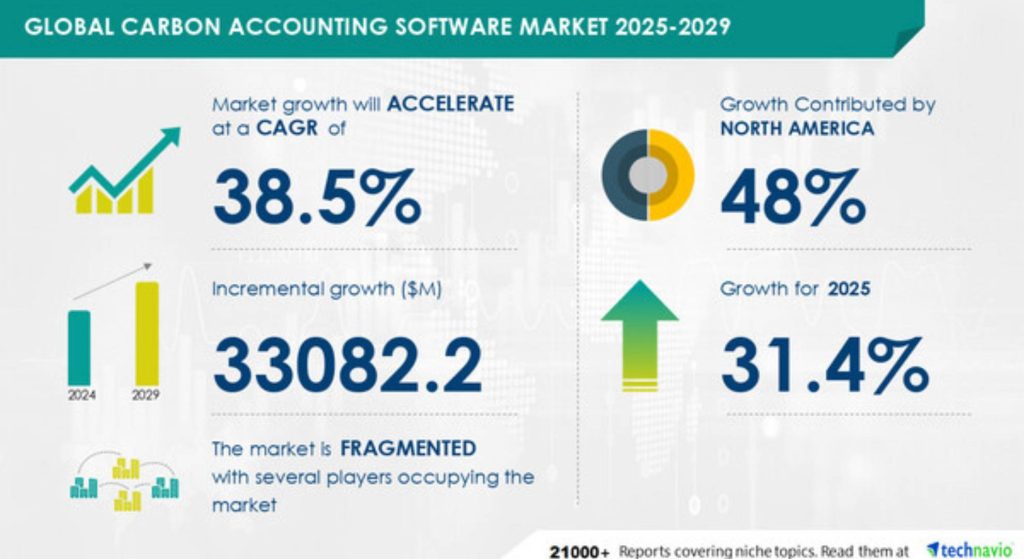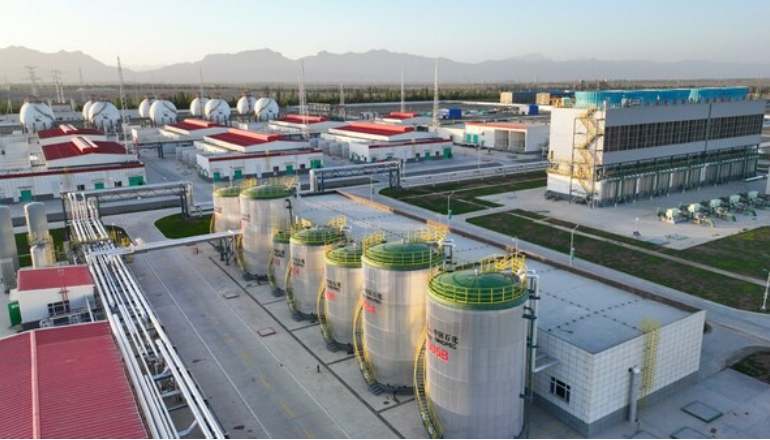A new Technavio report predicts a $33.08 billion growth in the carbon accounting software market from 2025-2029, driven by carbon emission policies and the impact of AI on market trends.
The market is projected to grow at a CAGR of 38.5% due to rising carbon emissions policies and demand for software as a service-based carbon accounting software.
Growth drivers:
The carbon accounting software market is growing as enterprises focus on measuring, managing, and reducing carbon emissions for net-zero emissions and financial opportunities.
The market presents financial opportunities for investors in sustainability and high-tech solutions, including digital twin technology, AI, and predictive analytics, to manage carbon footprints in commercial operations.
Digital alternatives to paperless progress, such as online banking and mobile payment apps, are also playing a role in reducing carbon footprints. Fossil fuel companies are also investing in renewable energy sources like wind power and algae biofuels to meet their net-zero targets.
Other growth drivers are the increasing product demand, COP27, and the need to move away from fossil fuel consumption.
The SaaS impact:
Carbon accounting software is crucial for companies to maintain competitiveness and achieve net-zero targets, with both on-premise and cloud-based solutions providing advanced expertise.
Carbon accounting software, delivered as a software-as-a-service (SaaS), provides flexibility for businesses, lowers upfront costs, and is beneficial for large organizations and SMEs.
Challenges:
The challenge lies in capturing energy usage data effectively, Technavio said.
Emissions auditing is crucial for environmental sustainability, but many organizations lack detailed energy usage tracking. Accurate carbon accounting requires careful data collection and organization, including utility bills and contact with plant managers, to accurately measure and report carbon emissions.
For example, accounting systems often overlook fleet and vehicle energy consumption data, necessitating careful data collection and organization for effective carbon accounting, including utility bills and contact with plant managers.
It is also important to avoid greenwashing practices and ensure transparency in carbon reporting.
Our take:
Carbon accounting software aids businesses in tracking and reducing greenhouse gas emissions, promoting sustainability goals, and ensuring compliance with regulations. It collects data from various sources, calculates emissions, generates reports, aids in decarbonization planning, provides scenario modeling, and ensures compliance with regulations.












